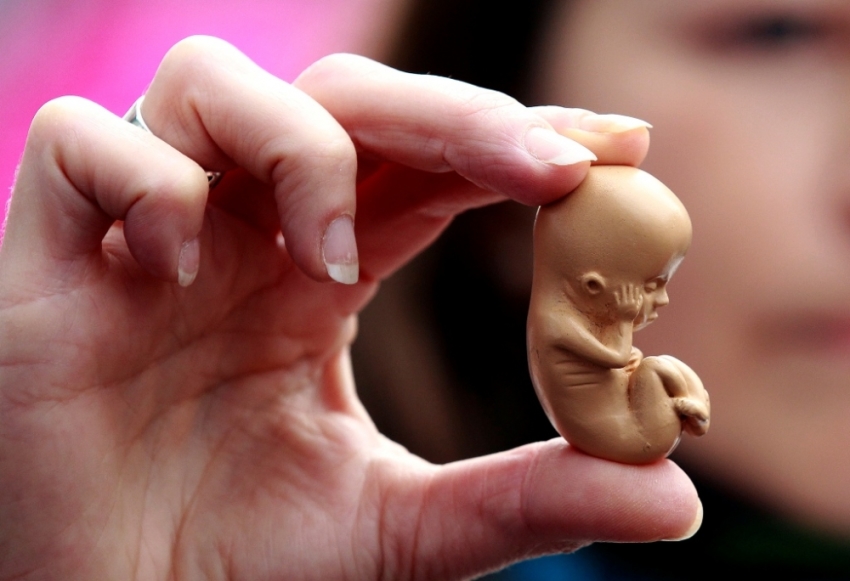UK Court Rules Pregnant Mothers Who Abuse Alcohol Are Not Liable for Life-Long Brain Damage of Their Children; Such Babies Not Eligible for Compensation

In a precedential ruling, Britain's Court of Appeal ruled on Thursday that mothers who excessively drink while pregnant are not criminally responsible for causing life-long disabilities to their unborn babies and children born permanently harmed by their mother's alcohol abuse are not eligible to receive criminal injury compensation from the government.
Attorneys representing a 7-year-old girl, who is known only as CP and was born with severe brain damage because her mother consumed either half a bottle of vodka or eight cans of lager per day, petitioned the court to grant her compensation funds from Britain's Criminal Injuries Compensation Authority.
However, the three-judge panel ruled that a fetus cannot be considered a person under British law because they do not have a "legal personality" and are just an "organism" in the mother's womb. The court also deemed that since pregnant alcohol abuse has not been criminalized by Parliament, the mother had not committed a crime.
"The time at which harm, acknowledged in this case to amount to grievous bodily harm, occurred was whilst [the child] was in the womb. At that stage the child did not have legal personality so as to constitute 'any other person,'" Justice Colman Treacy said in her judgment. "We have held that a mother, who is pregnant and who drinks to excess, despite knowledge of the potential harmful consequences to the child of doing so, is not guilty of criminal offense under our law."
With over 80 other similar cases involving Foetal Alcohol Spectrum Disorder (FASD) pending the outcome of this particular case, the court's ruling will have a larger impact. According to Today Online, there were 252 diagnoses of FASD in England in 2012-2013.
In a Friday interview with The Christian Post, Chuck Donovan, president of the American pro-life group Charlotte Lozier Institute, blamed the pro-abortion legislation and regulation that have gained prominence in the past few decades, in the U.K. and the United States, as they have complicated the simple issue of providing assistance to disabled children severely in need.
"The court is coming to the strained conclusion that this is not a human life and, labeled as an organism, just shows how appalling the language has to get," Donovan said. "The law is ignoring reality, and we do it here in the United States too, by describing the unborn child as potential human life. We get a lot further when we recognize that we have an actual human life interest that we have to protect."
Donovan further stated that if a born child was given alcohol to abuse by his parents and is eligible to receive funding from the compensation authority, then children who have been given alcohol to abuse while in the womb should qualify too.
"If a fund was created to help victims, and obviously a mother giving a born child alcohol to drink in high volume that would be committing a criminal act, and then the baby or the child would be eligible for help from this fund," Donovan said. "If that is the case, then the child should be eligible as an unborn child."
Ann Furedi, chief executive of the British Pregnancy Advisory Service, and Rebecca Schiller, co-chairman of the Birthrights pregnant woman's rights legal advocacy group, agreed in a joint statement that the court's ruling is an "important" ruling for women.
"This is an extremely important ruling for women everywhere," the statement reads. "A small number of women drink very heavily throughout their pregnancy. Their problems will not be helped either by the threat of prosecution … or through ever more warnings about the dangers of drinking while pregnant."
Although Donovan feels that criminalizing the act of a mother drinking while pregnant is not necessarily the way to go about helping children diagnosed with FASD, he does not view the court's decision as a positive for women.
"By providing a national fund to assist in these cases excluding the babies who are injured in-utero, [it] does nothing for women," Donovan asserted. "What I think is totally inappropriate is introducing the abortion right concern into it.
"The child is an independent human being and the harm that can be done to it simply illustrates that this is a human life and what you have here is rank discrimination where a child was excluded."
Donovan said he understands that the court can only interpret the current state of the law and said it is up to Parliament to adjust the compensation authority's statutes to include the rights of those wrongly disabled in utero.
"Whether the court should correct it, I am not prepared to comment on, but certainly the Parliament could do it and could make these [children] eligible," Donovan said.
"They can do it without getting into any criminal aspect of such damage because the damage is real and the child is real."



























